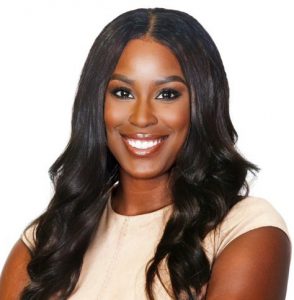As organizations continue to prioritize diversity in hiring, many are turning to Historically Black Colleges and Universities (HBCUs) to reach more Black internship and job candidates. However, to successfully recruit future employees from HBCUs, you’ll need to employ different strategies than the ones you may be leaning on to reach students at Primarily White Institutions (PWIs). Specifically, you’ll need to focus more on building relationships with those schools and their students, and offering support to HBCUs.
In our September Talent Talk, we invited five talent leaders to discuss best practices for recruiting from HBCUs — Benton Logan of Capital One, Kennedy Mack of Accenture, Giselle Battley of JLL, Jordan Watters of McKinsey & Company, and Jaylin Turner of ServiceNow — and to learn more about what it takes to engage with HBCUs as part of your recruitment process.
To learn more, you can watch the panel recap here, and continue reading for some key takeaways from the discussion.
1. Find Out How You Can Support HBCUs
When recruiting at HBCUs, you must consider how you can invest in these universities — because simply showing up on campus once to showcase your company and open opportunities isn’t going to be enough. Instead of focusing on meeting your recruiting targets, when it comes to HBCUs it’s important to brainstorm ways that you can offer ongoing support to these universities.
Often, career services centers at HBCUs are run by small teams. You can start by reaching out and asking how you can be a resource for them. This can take the form of hosting a guest lecture, sponsoring a student organization, or offering interview tips to students via an event.
2. Engage With HBCU Faculty
One of the best ways to build relationships with HBCUs is to connect with their faculty. Staff members at HBCUs are passionate about helping Black students succeed, and many act as their mentors for years to come. These faculty members may be able to connect you with excellent candidates in the future.
3. Don’t Forget About Small HBCUs
It might be convenient to reach out to larger HBCUs or universities you’ve recruited from in the past, but there are many other HBCUs around the country to consider engaging with. Don’t be afraid to travel to smaller schools to form relationships with untapped talent, and to expose students to new opportunities.
4. Collaborate With Alumni
After HBCU students graduate, they often remain connected to their college community. Alumni can therefore help you foster relationships with their alma mater and will have valuable insights into how you can connect with those students. Take time to meet with alums, hear about their experiences at their HBCU, and collaborate on how you can connect with students.
5. Be Transparent
HBCUs and their students appreciate transparency. If diversity hasn’t previously been a priority in your recruiting strategy, be honest about how you’re making an effort in the present, and be sure to have the data and number to show what you’re tracking and where you hope to be.
6. Remain In Constant Contact
When recruiting from HBCUs, it’s important that you stay in contact with students all year, and not just during recruitment season. Take time to get to know students, and reach out to see how you can help them in their job searches. You can do this by connecting on social media, hosting virtual events, or simply sending a text to check in with students you’ve spoken with.
7. Invest in the Long-Term
Even if you don’t hit your recruiting targets in the first year, that doesn’t mean you should stop recruiting from HBCUs. Building a pipeline of talent takes time. There are so many impressive candidates at HBCUs, which is why you should focus on how you can invest in building long-term relationships at these universities.
Recruiting from HBCUs will require time and effort — but is crucial for reaching a more diverse slate of talent. Plus, HBCUs continue to be a great source of highly-qualified candidates, accounting for about 20% of bachelor’s degrees awarded to Black students. In addition to these tips for how you can build relationships with HBCUs, you may also want to learn more about traditionally underrepresented talent searching for jobs today, which you can find in our latest report, “Diversity in the Workplace.”
















